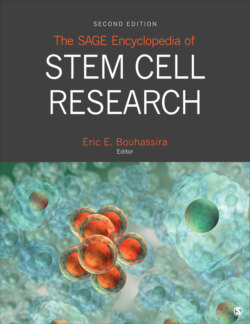Читать книгу The SAGE Encyclopedia of Stem Cell Research - Группа авторов - Страница 419
На сайте Литреса книга снята с продажи.
The use of sirolimus, tacrolimus, and thymoglobulin as graft-versus-host prophylaxis in hematological cancer patients undergoing unrelated donor hematopoietic cell transplantation
ОглавлениеA phase II clinical trial is studying how well sirolimus, tacrolimus, and antithymocyte globulin work in preventing graft-versus-host disease in hematological cancer patients undergoing a donor stem cell transplant. The major aim of the study is to determine the incidence and severity of acute and chronic graft-versus-host disease. Other determinants to be monitored include the safety of this regime in the first six months after transplant, and the time before absolute neutrophil and platelet count recovery. The investigators will also monitor the participants after their first hospital discharge. In addition, the study will investigate the incidence of infections, particularly cytomegalovirus and Epstein-Barr virus reactivation, incidence of thrombotic microangiopathy, incidence of disease relapse, and the incidence of post-transplant lymphoproliferative disease. Moreover, the study will determine nonrelapse mortality at 100 days and one year past hematopoietic stem cell transplantation (HSCT), as well as overall and disease-free survival at one year post-HSC transplant.
In general, most of the clinical trials going on in the United States for the treatment of hematological cancers are stem cell based, particularly the use of hematopoietic stem cells. Current clinical trials on hematological cancer treatments are directed toward extending the benefits of stem cell to more categories of patients. These approaches include the use of stem cell transplant with less intensity of chemotherapy regimens, which will allow use in patients that may be too sick or old. The use of haploidentical or partially matched cord blood will allow patients who do not have an available matched sibling to utilize transplantation. These trials are exploring pharmacological manipulation and selection of donor stem cells, which will help increase better outcomes and reduce complications. These trials are especially important in adult bone marrow transplant, since fewer than 25% of adult patients have access to matched donors.
Chinedu Anthony Anene
Bradford University School of Management
See Also: Bone Marrow Transplants; Clinical Trials, U.S.: Graft Failure, Graft-Versus-Host Disease; Hematopoietic Transplantation: Cancer.
